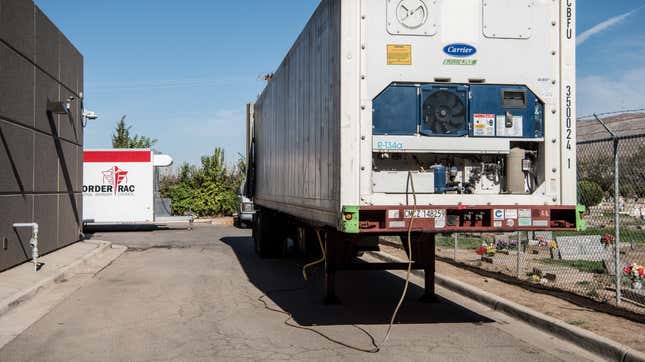
Public health officials in Oklahoma announced on Friday the state will begin using text messages to help contact people who may have been exposed to the coronavirus by patients who have tested positive. It’s a wise decision for contact tracers in the state, given the reluctance of many people to answer phones from unknown numbers, but it highlights the fact that the U.S. is still months behind other wealthy countries when it comes to fighting covid-19.
The job of contact tracers is to get information from people who test positive for a communicable disease and figure out who else they may have infected to contact those people and warn them. This kind of work is incredibly common during normal times when someone tests positive for a sexually transmitted disease, but it’s also vital during a pandemic like our current coronavirus crisis.
“This new method [of texting] will enable the contacts to conveniently fill out their own contact tracing interview form, receive specific quarantine-related messaging, and acquire a letter of exclusion without ever interacting with a contact tracer,” Oklahoma State Department of Health said in a press release. “For those who do not have a cell phone or prefer to receive phone calls, there is an easy option to enroll in call monitoring rather than text monitoring.”
Oklahoma’s Governor, Kevin Stitt, became the first state leader to announce they’d tested positive for the disease on July 15, not long after attending President Donald Trump’s neo-fascist rally in Tulsa the previous month.
Oklahoma currently has 300 contact tracers, with another 160 in training, for its population of 4 million people, according to the state. And while it’s great that Oklahoma is working on training more staff, citizens of the Sooner State should probably be asking why this infrastructure wasn’t set up months ago. It’s the end of July already and the global coronavirus crisis has officially declared a pandemic on March 11, long after it became obvious from outbreaks in Italy and South Korea that the disease would ravage the entire world.
As one example of a country that got it right, Germany’s states ramped up contact tracing relatively quickly. The German state of Baden-Württemberg, which has a population of 11 million, had 549 contact tracers in the beginning of March, and it was employing 3,036 by early May, according to figures provided to BuzzFeed. By contrast, Georgia, which also has about 11 million people, only had 250 contact tracers in March and the health system was still overburdened as late as mid-April, only working on tracing the contacts of health workers, first responders, and high-risk patients. Georgia currently has about 1,225 contact tracers, according to Georgia Public Broadcasting, still just one-third of a comparable German state’s contact tracers, though Georgia does use text messages to help notify people.
According to the Atlanta Journal-Constitution the state of Georgia’s contact tracers were able to reach just 37% of people who tested positive for the virus between June 23 and July 8. That means the vast majority of covid cases during that period couldn’t be properly tracked, and people weren’t warned they should self-isolate. And that’s not even taking into account the hurdle of testing delays. The Mayor of Atlanta, Keisha Lance Bottoms, didn’t get her test back for eight days when she tested positive earlier this month—over a full week of not knowing that she and her family should quarantine.
How do the different responses in the U.S. and Germany compare? Baden-Württemberg has reported just 36,492 cases and 1,838 deaths from the disease. Georgia has reported over 144,000 cases and 3,288 deaths.
The U.S., more broadly, has currently identified over 4 million coronavirus cases and more than 144,000 deaths. But the downside of this pandemic is not simply a binary choice between life and death. Currently 59,846 Americans are in the hospital with covid-19, according to the Covid Tracking Project. New reports come out each day warning of the possible long term health problems people could face even if they survive the illness.
CDC Director Robert Redfield has previously testified about the fundamental failure of the U.S. response to this pandemic: The country simply hasn’t invested in public health systems to ensure everyone would be prepared for a disaster. And he’s absolutely correct. Americans are now paying the price, all while President Trump insists that schools open back up in the fall.
But until testing becomes more widespread and timely, and tracing programs are deployed universally with technology like texts, there’s little hope this pandemic will subside in the U.S. anytime soon. Meanwhile, Germany’s opening back up and it’s reaping the rewards: Its economy is rebounding too.